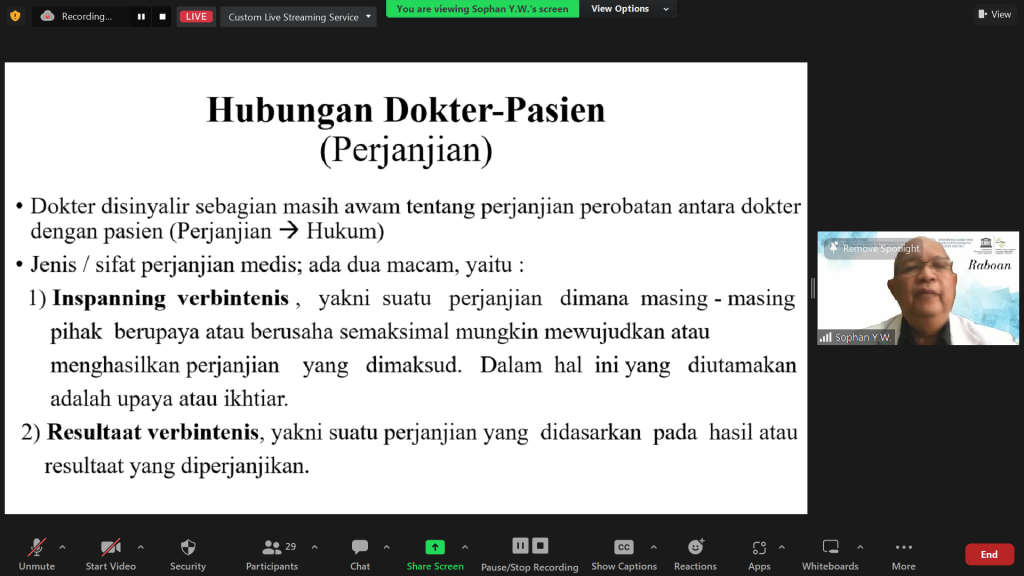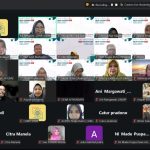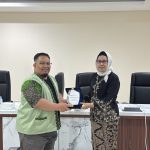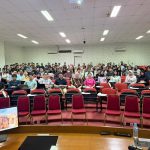
Wednesday (05/4), the Center for Medical Bioethics and Humanities again held the Raboan Discussion Forum. The topics discussed at this event were Unplanned Complication and How to Deal with It. The speaker on this topic was Dr. dr. H. Sophan Yahya Warnasouda, Sp.OT and Traumatology, Master of Health Law, a bioethicist from the Indonesian Bioethics Forum. Meanwhile, the moderator is dr. Tiea Khatija.
In medicine, ethics has an important role in life. So that its application covers all areas of life, including in health services. Doctors have the obligation to follow the regulations stipulated in KODEKI Year 2012 Article 1 and Law of the Republic of Indonesia Number 29 Year 2004 concerning Medical Practice.
The purpose of ethics education in medical education is to make prospective doctors more humane and have intellectual and emotional maturity. The Principles of Medical Ethics contain four (4) principles: autonomy, beneficence, nonmaleficence, and justice. Ethics related to the medical profession are recorded in the form of the Indonesian Code of Medical Ethics, namely: general obligations, obligations of doctors to patients, obligations to colleagues and obligations of doctors to themselves.
In KODEKI, actions or actions have been regulated categories of violations, namely: purely ethical and ethical violations. The Indonesian Disciplinary Honor Council explained that communication errors caused 45% of disciplinary infractions. So communication in health services is very important. Doctors who make mistakes are responsible for ethical, disciplinary, legal, and responsibility to God.
So Informed Consent is needed to avoid complications. The doctor must give Inform Consent so that the information that needs to be conveyed using language that the patient can understand.
So that ethics are needed to create behavior, behavior is not only about being given information about which is good which is bad, which is okay which should not be in accordance with the code of ethics and then can change its behavior, but it needs sustainable environmental conditions, from students to becoming doctors, it needs to be escorted by meetings that discuss ethics, so that it can sharpen and still maintain medical ethics. Therefore ethics are constantly required in medicine.
Download material here
Watch full video here
https://youtube.com/live/cnMGCdqFbRs?feature=share
Writer: Nathan Agwin Khenda
Editor: Alifia Nuurma Addini






